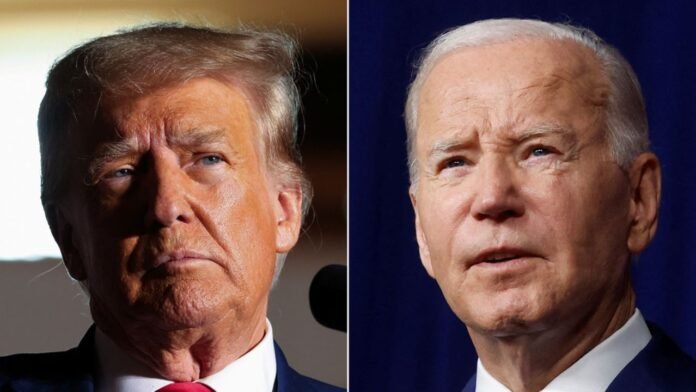Former President Donald Trump, eyeing a potential return to the White House in the 2024 election, has promised to dismantle many of President Joe Biden’s key policies, with a particular focus on the ambitious electric vehicle (EV) agenda that the Biden administration has pushed forward. This plan, which includes aggressive targets for EV production, charging infrastructure, and emissions standards, could face significant setbacks if Trump follows through on his pledge to reverse these measures. The implications of such a move are far-reaching, particularly for the U.S. auto industry and job market, both of which have been heavily impacted by the transition to cleaner transportation technologies.
Trump’s Reversal of Biden’s EV Push
President Biden’s administration has placed a strong emphasis on reducing the nation’s carbon footprint by transitioning away from fossil fuels, with electric vehicles at the heart of this strategy. Under Biden’s leadership, the U.S. government set a target of having electric vehicles account for 50% of all new car sales by 2030. This ambitious goal is accompanied by federal subsidies, tax incentives for EV buyers, and massive investments in EV charging infrastructure to accelerate the adoption of cleaner cars.
In contrast, Trump has expressed opposition to such policies, criticizing the shift toward EVs as detrimental to the traditional American automotive sector. During his presidency, Trump was a vocal supporter of the oil and gas industries and emphasized a more market-driven approach to energy policy. His stance on EVs is in direct opposition to Biden’s push for government intervention in the car market and regulations aimed at reducing emissions. Trump has argued that policies promoting EVs are unrealistic, claiming they would harm American workers and lead to job losses in the traditional automotive and energy sectors.
As part of his potential 2024 campaign platform, Trump has vowed to undo Biden’s EV incentives and emissions regulations, rolling back federal investments in EV infrastructure and potentially even withdrawing from agreements like the Paris Climate Accord. Trump’s goal is to revive the U.S. auto industry’s reliance on internal combustion engine (ICE) vehicles and reduce the government’s role in pushing for cleaner energy alternatives.
Impact on the U.S. Auto Industry
The U.S. auto industry, which is home to major manufacturers like General Motors (GM), Ford, and Stellantis (formerly Fiat Chrysler), has already begun shifting toward EV production, encouraged by both government policies and consumer demand for cleaner vehicles. Ford, for example, has announced plans to invest billions of dollars into EV manufacturing and aims to transition much of its fleet to electric models over the next decade. GM has committed to an all-electric future, planning to phase out gas-powered vehicles by 2035.
If Trump follows through with his plans to dismantle Biden’s EV policies, it could create a period of uncertainty in the auto industry. Automakers may find themselves caught between competing federal regulations, with some states, particularly in the West and Northeast, still pushing for stringent emissions standards while others embrace a return to less restrictive measures. Trump’s rollback could lead to confusion and hesitation in the auto sector, which has already committed significant resources to EV technology.
Furthermore, Trump’s stance could create friction with automakers who are already deeply invested in transitioning to electric models. Companies like GM, Ford, and others have already received substantial government grants and tax breaks under Biden’s administration to help them pivot toward electric vehicles. A sudden reversal of these policies could hurt manufacturers who have committed to a cleaner future and potentially reverse some of the investments that have been made in EV factories and research.
Job Market Challenges
While Trump’s plan to dismantle Biden’s EV policies is presented as a way to protect jobs in the traditional auto sector, it could have mixed effects on the U.S. job market. The shift to electric vehicles is expected to create new jobs in sectors such as battery manufacturing, EV maintenance, and charging infrastructure. These positions are often seen as high-tech, well-paying opportunities, but they also require specialized training and education.
In contrast, the production of traditional internal combustion engine vehicles, which Trump’s policies would likely protect, involves different skill sets, and many of those jobs are at risk as automakers transition toward EVs. The International Labor Organization (ILO) has estimated that the transition to a greener economy could lead to job losses in traditional automotive manufacturing, particularly in communities dependent on fossil fuel industries.
By resisting Biden’s push for EVs, Trump could prevent some of these job losses in the short term, but it may also hinder long-term job creation in the green energy sector. The ultimate effect on employment depends on whether the U.S. can maintain a balance between protecting existing jobs in traditional manufacturing while also investing in the new industries emerging from the global shift toward sustainability.
Environmental and Economic Considerations
Environmental advocates argue that dismantling Biden’s EV policies would delay the U.S.’s progress on climate goals and economic growth opportunities tied to the green energy transition. The U.S. is already behind other nations in EV adoption, and a reversal of policies could put the country further at a disadvantage, especially as other economies move forward with stricter emissions regulations.
Moreover, automakers are increasingly facing pressure from global markets, where the demand for electric vehicles continues to grow. Europe and China have been at the forefront of EV development, and U.S. companies that fail to embrace the electric future could lose their competitive edge internationally.
The potential dismantling of President Biden’s electric vehicle policies by Donald Trump could have wide-reaching effects on both the U.S. auto industry and the job market. While some workers in the traditional auto sector may see short-term benefits, the long-term implications of delaying the EV transition could harm both the environment and the U.S. economy. The challenge for the next administration will be finding a way to navigate the complex balance between traditional automotive jobs and the green energy sector, ensuring that the U.S. remains competitive in the rapidly evolving global automotive market.

